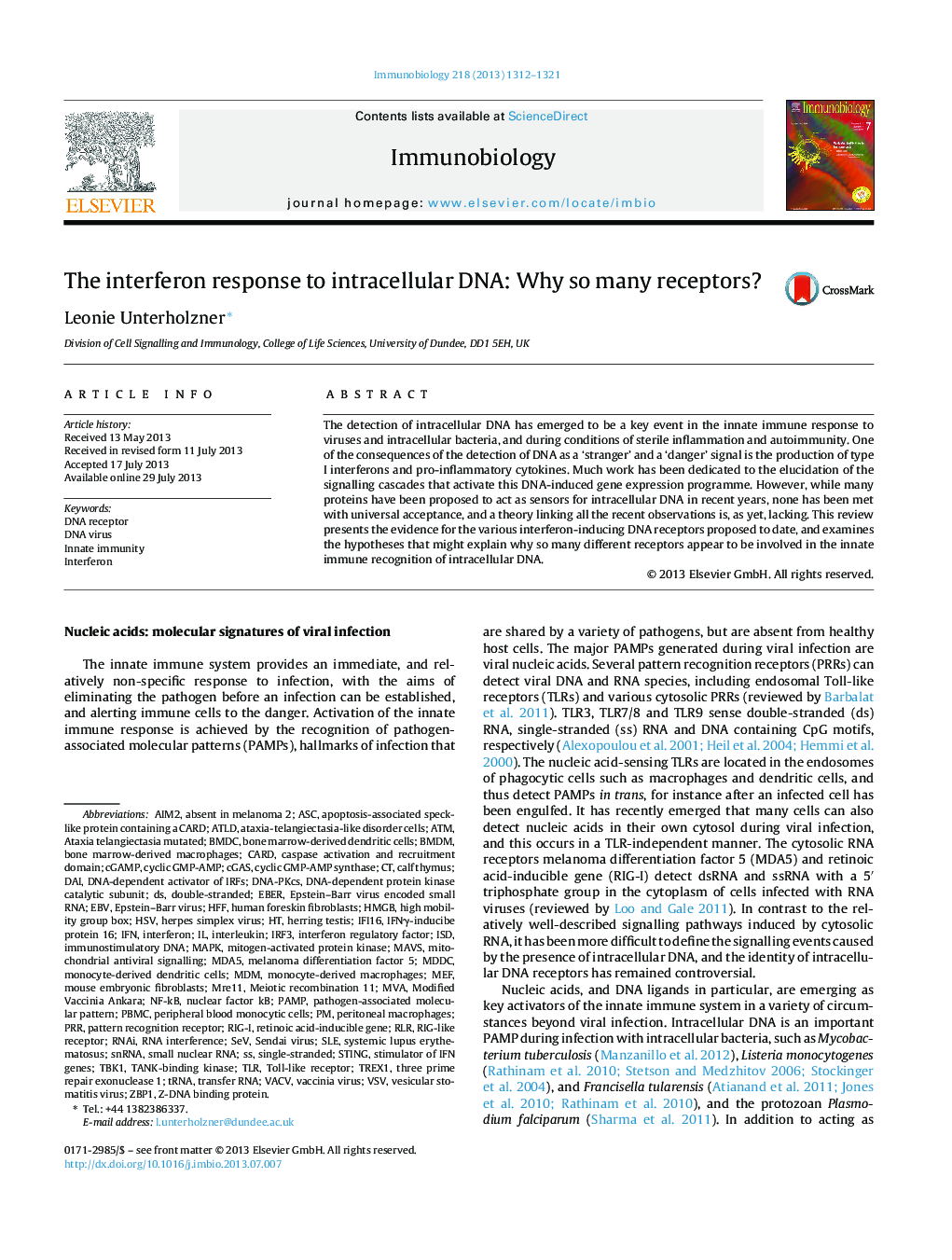| کد مقاله | کد نشریه | سال انتشار | مقاله انگلیسی | نسخه تمام متن |
|---|---|---|---|---|
| 2183446 | 1095568 | 2013 | 10 صفحه PDF | دانلود رایگان |

The detection of intracellular DNA has emerged to be a key event in the innate immune response to viruses and intracellular bacteria, and during conditions of sterile inflammation and autoimmunity. One of the consequences of the detection of DNA as a ‘stranger’ and a ‘danger’ signal is the production of type I interferons and pro-inflammatory cytokines. Much work has been dedicated to the elucidation of the signalling cascades that activate this DNA-induced gene expression programme. However, while many proteins have been proposed to act as sensors for intracellular DNA in recent years, none has been met with universal acceptance, and a theory linking all the recent observations is, as yet, lacking. This review presents the evidence for the various interferon-inducing DNA receptors proposed to date, and examines the hypotheses that might explain why so many different receptors appear to be involved in the innate immune recognition of intracellular DNA.
Journal: Immunobiology - Volume 218, Issue 11, November 2013, Pages 1312–1321